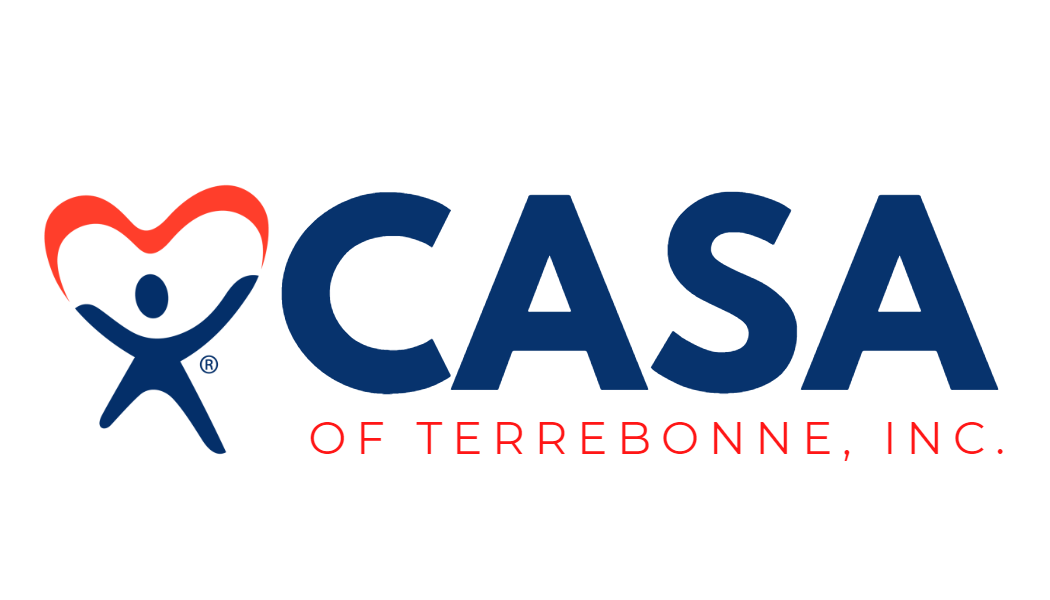What is a CASA?
Court Appointed Special Advocates are community members just like you who ensure each foster child’s needs remain a priority in an over-burdened child welfare system while working to find safe, permanent homes for these most vulnerable children. CASA Volunteers get to know the children, their caregivers, and the facts of the case. They take part in such processes as child and family visits, court hearings, and meetings about the children's needs. Advocates make recommendations and explore all of the options for permanent homes.
Who are CASA Volunteers?
Ordinary people, 21 or older, who care about the well-being of kids. CASA Volunteers come from all backgrounds. Many work full-time. Some are students, couples, or retired people. Most CASA Volunteers work on a single case at a time. No legal expertise is required.
How do children benefit from having a CASA?
Decisions are made every day which affect the lives of children in foster care. CASA Volunteers help these decisions to be made more promptly and with greater information and sensitivity to their individual needs. CASA Volunteers work for quicker, better outcomes, and provide children in foster care with the knowledge that there is a community around them who cares.
Are CASA Volunteers trained, supervised, and supported?
Yes. CASA of Terrebonne has a training program which requires 1 orientation class, 5 sessions of in-class training, 5 sessions of online self- study, 1 session of Optima training and 2 court observations prior to case assignment. The total process takes 7 weeks to complete. All volunteers are matched with an Advocate Supervisor who is a member of the CASA staff. Advocate Supervisors provide individual guidance, support, and accompaniment to the volunteer during their time as a Volunteer Advocate.
Are CASA Volunteers really important in the child welfare process?
Definitely. CASA of Terrebonne could not serve the children of Terrebonne Parish without its many dedicated volunteers. Courts all over the parish depend on their local CASA Volunteers to help inform and expedite the child welfare process. Judges implement the CASA program in their jurisdictions and appoint CASA Volunteers to as many cases as possible. Child Protective Services includes CASA in meetings, visits, and other proceedings. CASA has been endorsed by the American Bar Association, National Council of Juvenile and Family Court Judges, Office of Juvenile Justice and Delinquency, and the Department of Justice.
Is there a 'typical' CASA Volunteer and are there special qualifications?
Volunteers come from a variety of professional, educational, and ethnic backgrounds. Over half are employed full-time. Volunteers must be 21 or older, undergo a background check and a personal interview, complete the training curriculum, and agree to abide by the policies and guidelines of CASA of Terrebonne. CASA Volunteers must be patient, open-minded people who have good communication skills, a history of following through on commitments, and a willingness to accept guidance. Above all, they must care about children.
How does CASA feel about family reunification after child abuse?
CASA holds the safety of children as its highest priority. A child's best chance for love and protection is often with his or her birth family, and CASA is supportive of reunification when it is in the best interest of the children involved. However, CASA will only advocate for children to return home if they can do so safely, receiving the love, stability, and protection they deserve.
Do CASA Volunteers wield authority in child welfare cases?
CASA Volunteers have court-mandated access to certain information and proceedings, but they do not have the authority to decide outcomes. Rather, they rely on their communication skills, their informed recommendations and the respect of the courts to influence outcomes.
How much time does it take to be a CASA Volunteer?
It will vary each month, and will generally range from 10-15 hours per month depending on the type of volunteer assignment you choose. Some of this time can be spent on evenings or weekends, but there are court hearings, phone calls, and meetings during working hours as well. We will work with you to find an assignment that suits your availability and your volunteer goals.
Can I include my family in my volunteer work?
Only trained CASA Volunteers are able to work with the children we serve. Children in foster care are assured a degree of confidentiality, and the friends and family of Volunteer Advocates are not allowed to meet them or know their identity. Only volunteers who have been fully screened, trained, and sworn in as officers of the court may have contact with CASA children. For other volunteer opportunities contact Christine Aucoin, Outreach and Training Coordinator.
Do I have to volunteer alone?
Not necessarily. In fact, teaming up with a partner for CASA can make it a shared experience. This may be friends, significant others, family, or co-workers. Both people must complete the required training. Once assigned to a case, the team will handle the responsibilities together.
What are some of the challenges of being a CASA Volunteer?
Being a CASA Volunteer is both rewarding and challenging. The child welfare system is bureaucratic and overburdened, and CASA Volunteers often have to work hard to get the system to respond. Because of court decisions, social service plans, and other factors out of our control, the volunteer can face disappointments. Travel may be an issue as foster children may be moved from placement to placement. These placements can be anywhere in the state. However, the biggest reward comes on the day when the child is placed in a safe, permanent home, and knowing they made a difference in a child's life.
What do I gain from becoming a CASA Volunteer?
The most important benefit of being a CASA Volunteer is the chance to make a meaningful contribution to the life of a child who desperately needs your help. Many volunteers choose to stay in contact with their CASA "kids" even as they transition into adulthood.
What do I have to do to become a CASA Volunteer?
To take the first step towards becoming a CASA volunteer, complete and submit the CASA volunteer application.

